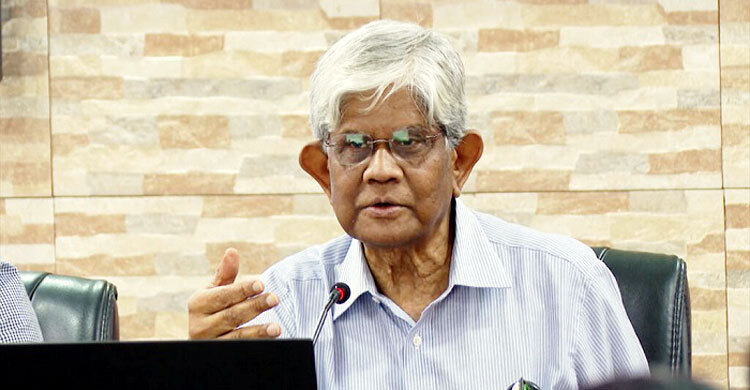Govt procuring LNG after comparing int'l price from various sources: Finance Adviser


Finance Adviser Dr Salehuddin Ahmed today said that the interim government has been procuring LNG not from a specific single source, but rather from various sources in line with its demands after comparing international prices.
"No, we're not importing LNG from a single source... the government is procuring LNG from various sources, be it the USA, China, or Saudi Arabia, after comparing international prices, and it's not easy (to import LNG from a single source without following rules)," he said.
The Finance Adviser was responding to queries from reporters after chairing two separate meetings of the Advisers Council Committee on Economic Affairs and Government Purchase, held at the Cabinet Division Conference Room at Bangladesh Secretariat today.
On the macroeconomic front, Dr Salehuddin said the government has been trying its best to consolidate the macroeconomic situation, while also putting utmost effort into realizing taxes as much as possible, since tax lawyers have been included in the Tax Representative Management System (TRMS).
Asked about the outcomes of the current visit of the USTR delegation to Bangladesh, he said the issue lies with the Commerce Ministry, especially as emphasis is being given to minimizing the existing trade gap between Bangladesh and the USA by importing more items from the USA.
"We're now in a bit more comfortable position as our trade gap with the USA is narrowing, although it is around $125 billion for Vietnam," he said, adding that time will tell what the implications will be.
Replying to another question, the Adviser said that importing more goods from the USA may increase the import cost, but quality definitely matters here.
Citing an example, he said that importing wheat from the USA may increase the cost, but its quality is definitely better. "But, on the whole, we need to import a bit more from the USA to minimize the trade gap."
Dr Salehuddin told another questioner that this move would not impact the country's overall exports or inflation.
Besides, he said there would be no such impact on consumers, as the government has been providing essential items to low-income group people at affordable prices through the state-run Trading Corporation of Bangladesh (TCB).
Despite the usual trend of imports, exports, and the local supply chain, he said that problems still exist in the wholesale and retail markets in the country, as those often go beyond economic rationale.
However, the overall inflationary trend is now more or less stable, as the non-food inflation rate has declined, he added.
Asked about concerns from some economists over the current unemployment trend, he said that definitely, creating employment is a continuous challenge for the country, as the private sector takes the 'lead role' in generating jobs.
"If business operations slow down, then it definitely affects employment. But, we're providing policy support and other assistance to them. We're also keeping an eye on the matter as we're a bit concerned," he added.
The Finance Adviser told another questioner that overall trade and commerce operations in the country are now better, although revenue generation was low earlier due to various reasons, including political ones. "But now, revenue collection is picking up"
He went on to say, "Definitely, we're trying to raise employment through local initiatives, as proposals were also approved to this end today... employment must be created, as business-oriented jobs are needed the most."
He said the NBR is now unearthing many incidents of tax evasion, scrutinizing many tax files, and taking action.
Replying to another question about allegations of irregularities in fertilizer procurement, he said they would look into the matter.
He added that fertilizer is usually procured by the Ministry of Agriculture and the Ministry of Industries.
